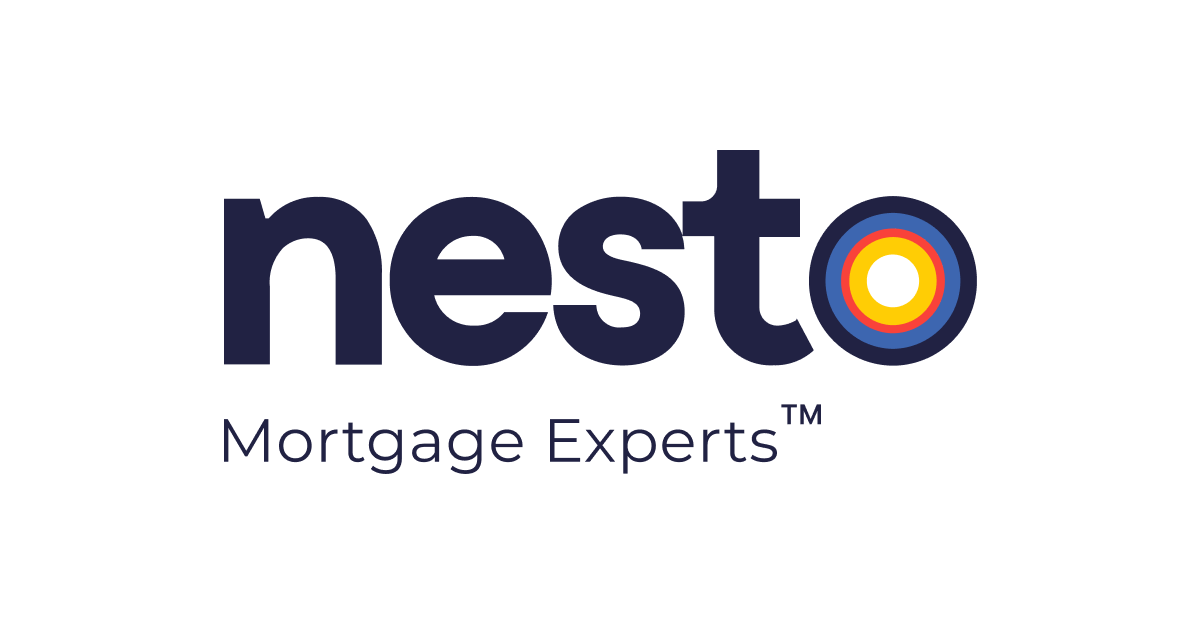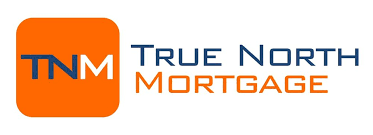
Best Mortgage Lenders in Canada
David Gyung / Shutterstock
Updated: January 08, 2024
Shopping around for a mortgage is a huge part of buying a home. You want to ensure that you get the best rates and the best terms based on your personal financial needs.
With so many different lenders on the market, it can be difficult to sort through all the options. Which is where this list of the best mortgage lenders in Canada comes in.
We’ve done some of the leg work for you and are sharing seven of our picks of the best mortgage lenders in Canada to get you started on your search.
Keep in mind that some banks may offer a “special rate” that will have more strict conditions.
Best mortgage lender for friends and family mortgage
- Motusbank was launched by Meridian Credit Union in 2019
- Online-only bank
- Customer service available via phone
- Motusbank offers both fixed- and variable-rate options for mortgages and is available across Canada, except for Quebec
Why we picked it
On top of competitive rates, Motusbank makes our list of top picks thanks to some of its features. These features include:
Flexible payment schedule: Borrowers can choose between weekly, biweekly, monthly, semi-monthly. You can also choose accelerated options (weekly, or bi-weekly) which will give you an extra payment per year, allowing you to pay off your mortgage faster.
Lump sum prepayments: This allows homeowners to pay down up to 20% of the purchase price every year without facing any penalties.
Regular payment increase: This allows homeowners to increase their monthly payment amount by up to a maximum of 20% without facing any penalties.
Skip-a-payment: If you are having a difficult month you can skip one mortgage payment every year without facing a penalty.
While all of these features are great on their own, the real standout feature offered by Motusbank is the friends and family mortgage option. This mortgage allows up to four people to pool their funds together to purchase a home. That means everyone has their name on the mortgage title and shares both the financial benefits and risks of being the homeowner.
It’s not a conventional way to purchase a home, but it offers an alternative option to homeownership for individuals who may not be able to afford a home otherwise. The friends and family mortgage option can be applied to any mortgage offered by Motusbank and includes all the features listed above.
You do not need to be related to the individuals you decide to share with but Motusbank suggests speaking with a lawyer in advance (you will need one to finalize the mortgage anyway) and getting a joint-ownership agreement. It’s not required, but it is a smart idea to better protect everyone involved. If you’d like to learn more or get started with the friends and family mortgage option, give Motusbank a call.
Motusbank fixed-rate mortgages
| Term | Rate |
|---|---|
| 6-month convertible fixed rate mortgage | 7.49% |
| 1-year fixed rate mortgage (open) | 7.79% |
| 1-year fixed rate mortgage | 7.09% |
| 2-year fixed rate mortgage | 6.69% |
| 3-year fixed rate mortgage | 6.69% |
| 4-year fixed rate mortgage | 6.49% |
| 5-year fixed rate mortgage | 6.79% |
| 5-year fixed rate mortgage (high ratio) | 6.79% |
Motusbank variable-rate mortgages
| Term | Rate |
|---|---|
| 5-year variable rate mortgage (open) | 9.20% |
| 5-year variable rate mortgage (open) | 7.25% |
| 5-year variable rate mortgage (high ratio) | 7.25% |
Pros and cons
Pros
-
Competitive rates
-
Handy features to help you save money on interest and pay off your mortgage faster
Cons
-
Online only, no in-person customer service
-
Not available to residents of Quebec
Best mortgage lender for a portable mortgage
- Tangerine is one of the most popular online banks in Canada
- Founded in 1997 and was formerly known as ING Direct Canada
- Probably best known by Canadians for its no-fee chequing account
- Offers fixed options, and one variable rate mortgage option
- Available to Canadians across the country, including Quebec
Why we picked it
Tangerine is consistently considered to be one of the best online banks in Canada for good reason. They have good products with competitive rates and stand-out features that set them apart from other Canadian mortgage lenders. Here are some of the reasons why we picked Tangerine as one of the best mortgage lenders in Canada:
Guaranteed rates: Not only are Tangerine’s rates competitive but they are guaranteed for up to 120 days — which is definitely on the longer end as some banks will only hold the rate for 30 days. If the rate drops within that time period, you can apply to qualify for the lower rate.
Online application: Applying for a mortgage with Tangerine is done digitally, which means you can do it on your own time without having to worry about fitting it into your otherwise busy schedule.
Lump sum payment: Every year you can add a lump sum prepayment of up to 25% of the original mortgage amount. You can do this on any payment date without facing penalties.
Regular payment increase: You can increase your original mortgage payments by up to 25% on any payment date without facing penalties.
Tangerine will also provide you with a dedicated account manager once you sign up.
The standout feature, however, it’s its portability. This means that if you choose to move, you can take your mortgage with you. There is no penalty to do this and you can keep your current rate, term, and loan amount. This feature has the potential to be incredibly helpful if you find yourself needing to move and could end up helping you save thousands of dollars in fees, interest, and other charges - especially after the recent interest rate hikes.
Tangerine fixed-rate mortgages
| Term | Rate |
|---|---|
| 1-year fixed rate mortgage | 7.44% |
| 2-year fixed rate mortgage | 6.60% |
| 3-year fixed rate mortgage | 6.19% |
| 4-year fixed rate mortgage | 6.04% |
| 5-year fixed rate mortgage | 5.94% |
| 7-year fixed rate mortgage | 6.39% |
| 10-year fixed rate mortgage | 6.79% |
Tangerine variable-rate mortgages
| Term | Rate |
|---|---|
| 5-year variable rate mortgage (open) | 7.15% |
Pros and cons
Pros
-
Competitive rates
-
Mortgage application is 100% digital and can be done online at your convenience
-
Flexible payment options
-
Personalized account manager
Cons
-
Only one variable rate option (five year)
-
Will not offer you a mortgage if you have ever filed for bankruptcy
-
Online only, no option to meet with someone in person
Best mortgage lender for residential mortgages

- Nesto, which was founded in 2018, refers to itself as “Canada’s first digital mortgage finance company”
- Nesto team is salaried; a difference that they claim means that they can pass more savings onto you as the potential borrower
- Available in all provinces and territories across Canada and offers both fixed and variable-rate mortgage options
- Will only provide mortgages for residential homes (four doors or less)
Why we picked it
Nesto may not be one of the best-known names in the country when it comes to mortgage loans. However, they have fantastic reviews on websites like Trustpilot (4.2/5) and offer competitive rates across the country. Part of what makes them different from other brokers and financial institutions offering mortgages is that they offer more transparency about their rates.
Most potential lenders offer you the highest rate to start, which is what you will see posted on websites when you first go mortgage shopping. There is then the middle rate, which is what you will be offered by mortgage brokers and specialists. It’s better than the posted rate, but still not as low as they could go.
The lowest rate on offer is called the floor rate. This is the bare minimum that a broker, specialist, bank, or other financial institution can offer. You can usually only get the floor rate if you work for it, but Nesto offers this low rate right out of the gate. Since they are an online bank and don’t work on commission, there is no need to offer borrowers anything but the lowest rates they can.
Nesto fixed-rate mortgages
| Term | Rate |
|---|---|
| 2-year fixed rate mortgage | 6.29% |
| 3-year fixed rate mortgage | 6.04% |
| 4-year fixed rate mortgage | 5.79% |
| 5-year fixed rate mortgage | 5.14% |
| 7-year fixed rate mortgage | 5.94% |
| 0-year fixed rate mortgage | 6.04% |
Nesto variable-rate mortgages in Ontario (can differ by province)
| Term | Rate |
|---|---|
| 3-year variable rate mortgage | 6.35% |
| 5-year variable rate mortgage | 6.00% |
Pros and cons
Pros
-
Available all across Canada
-
Fixed and variable rate mortgage options
-
Offers floor pricing right away
Cons
-
Strict guidelines that require a minimum credit score and no recent missed payments
-
Nesto does not finance investment properties, commercial properties, or alternative properties
-
Online only, no option to speak to someone in person
Best mortgage lender for individuals with bad credit

- Three different products, Merix, Lendwise and NPX
- Merix Financial specializes in residential mortgages
- Merix works with experienced mortgage brokers and are known for their customer service
- NPX is a financial solution aimed to help self-employed individuals, individuals with non-traditional incomes and individuals with a rocky credit history find a mortgage
- Merix Financial has funded over 29 billion dollars worth of mortgages and aims to help Canadians of all walks of life become homeowners
Why we picked it
Finding a mortgage is tricky enough for the average Canadian. Especially in the current market. However, for some Canadians, it’s even harder. Especially for Canadians who have low credit or a history of poor credit.
Mortgage lenders in Canada are typically divided into two categories. Prime or “A” lenders deal with borrowers with strong credit scores and a stable income. Then alternative or “B” lenders have less-strict requirements and are more accessible to Canadians who may not have high credit scores.
NPX by Merix Financial qualifies as an alternative lender and will have options available for individuals in these circumstances at better rates than those provided by private lenders. They have made a name for themselves as a strong choice in lender, especially for individuals who have poor credit. For individuals in these situations, there is a six-month mortgage term option.
The interest rates are, unsurprisingly, significantly higher than longer terms. However, that six-month term also allows the borrower to work on their credit score in the meantime and hopefully increase it a little so that when it comes time to renew, they can qualify for a better rate.
Merix Financial fixed-rate mortgages
| Term | Rate |
|---|---|
| 6-month fixed rate mortgage | 9.15% |
| 1-year fixed rate mortgage | 6.94% |
| 2-year fixed rate mortgage | 6.19% |
| 3-year fixed rate mortgage | 5.64% |
| 4-year fixed rate mortgage | 5.19% |
| 5-year fixed rate mortgage | 5.19% |
Merix variable-rate mortgages
| Term | Rate |
|---|---|
| 3-year variable rate mortgage | 5.85% |
| 5-year variable rate mortgage | 5.50% |
Pros and cons
Pros
-
Will work with individuals and consider more than just credit score
-
Terms for as little as six months are available
Cons
-
Many of the NPX products are only available in Ontario and/or British Columbia
Best mortgage lender for second homes and investment properties

- Has been working for Canadians for 20 years
- Has been featured on ‘The Entrepreneurs’ as well as the ‘Dragons’ Den’
- Was the first mortgage brokerage to become an official CMHC approved lender
- Team is salaried
- 11 walk-in store locations
Why we picked it
True North Mortgage made our list of the best mortgage lenders in Canada thanks to the diversity in the different mortgage products that they offer. Many smaller lenders don’t deal with vacation homes, second homes, and investment properties. However, as a larger brokerage, True North Mortgage does.
Of course, there are still some rules in place as to what qualifies. For example, vacation homes can include a cottage. But the property needs year-round access and has to have water, a septic system, heating, and electrical services. Second homes have the same requirements and must be single-family dwellings only. As for investment properties, you will need a down payment of at least 20%.
All of that aside, True North Mortgage makes the process relatively easy. Their experts are knowledgeable about the requirements and they will work to get you the lowest rates possible for your mortgage needs. In fact, True North Mortgage promises that they can get you the best rate. If you shop around and find better they will beat it or give you $500.
True North Mortgage fixed-rate mortgages
| Term | Rate |
|---|---|
| 1-year fixed rate mortgage | 6.84% |
| 2-year fixed rate mortgage | 6.19% |
| 3-year fixed rate mortgage | 5.74% |
| 4-year fixed rate mortgage | 5.29% |
| 5-year fixed rate mortgage | 5.14% |
True North variable-rate mortgages
| Term | Rate |
|---|---|
| 5-year variable rate mortgage | 6.00% |
Pros and cons
Pros
-
In-person offices, as well as online and phone services
-
Mortgage products for a large variety of needs
-
Competitive rates - employees are salaried and don’t work on commission
Cons
-
In-person offices are limited, there are only 11 for the entire country
-
Large range of mortgage products, but lots of conditions and requirements to qualify
Best for collateral mortgages
Pre-existing TD Bank customers should also speak to a representative since individuals with multiple TD products are known to be offered better rates.

- TD Bank is one of the top 10 banks in North America and one of the Big Five banks in Canada
- "A" or "prime lender," requires a good credit score and strong financial standing
- Numerous in-person locations
- Can apply for a mortgage online
Why we picked it
The big brick-and-mortar banks tend to have higher rates than online banks. So, why does TD Bank make the list of the best mortgage lenders in Canada? Well, to start with, there is a lot of trust that comes with the big-name banks that, quite frankly, many other, smaller lenders haven’t built yet.
As a Big Five bank, TD also offers a lot of products, often different and more specific than what can be offered by smaller lenders. In this situation, the TD mortgage standout is their collateral mortgage option. A collateral mortgage allows you to borrow from the equity of your home and the amount you can borrow increases as you off your mortgage and/or the value of your home increases. It’s revolving credit, which means once you pay it off, it’s available again. A collateral mortgage can often be an easier, and more cost-effective option compared to taking out a personal loan or refinancing your mortgage.
The TD collateral mortgage is actually a combination of two TD products. The first being their standard mortgage and the second being a HELOC. As you continue to pay off more of your mortgage, it unlocks more equity in your HELOC which you can then draw as needed. This type of product can be incredibly helpful if you plan on doing home renovations, updates, repairs, or additions to the property.
TD Bank fixed-rate mortgages
| Term | Rate |
|---|---|
| 1-year fixed rate mortgage | 7.04% |
| 2-year fixed rate mortgage | 6.54% |
| 3-year fixed rate mortgage | 6.44% |
| 4-year fixed rate mortgage | 6.29% |
| 5-year fixed rate mortgage | 6.34% |
| 6-year fixed rate mortgage | 6.49% |
| 7-year fixed rate mortgage | 6.60% |
| 10-year fixed rate mortgage | 6.85% |
TD Bank variable-rate mortgages
| Term | Rate |
|---|---|
| 5-year variable rate mortgage | 6.95% |
Pros and cons
Pros
-
TD Bank is a reputable and trusted financial institution
-
Canada-wide with in person, phone, and online options
-
The collateral mortgage option offers a versatile way to pay for any home upgrades and renovations
Cons
-
As a bigger bank, TD has higher mortgage rates than other mortgage lenders
-
As a prime lender, you need to have good credit to qualify for a mortgage product with TD Bank
-
Collateral mortgage option may not allow you to borrow as much as you would be able to if you refinanced your mortgage
Best for self-employed individuals

- National Bank is the sixth largest bank in Canada and the leading bank in the province of Quebec
- Has physical locations and a fully equipped online banking website
- Includes specific mortgage options for self-employed individuals
Why we picked it
Being self-employed can make it incredibly difficult to get a mortgage. Especially for individuals who are unable to provide standard proof of income. In many cases, prime lenders will turn these individuals away. In other situations, self-employed individuals will have a higher minimum down payment requirement in order to be considered. As such, shopping around for a mortgage can be tricky to navigate for these individuals. However, the National Bank offers mortgage products especially for self-employed Canadians to make the housing market more accessible.
While most lenders require self-employed individuals to have a down payment of at least 20%, National Bank only requires 10%. That’s a pretty big difference. That being said they still do have certain eligibility criteria.
The first condition is that you have to be self-employed or a small business owner for a minimum of two years and be able to show two years’ worth of finances and good credit management.
The second condition is in regard to the property itself. Eligible properties must have no more than two dwellings and one must be owner-occupied. Additionally, the property value can be no more than $1,000,000. Note that the maximum loan amount for this program is $600,000.
National Bank fixed-rate mortgages
| Term | Rate |
|---|---|
| 3-month fixed rate mortgage (closed) | 7.49% |
| 6 months fixed rate mortgage (closed) | 7.49% |
| 1-year fixed rate mortgage | 7.49% |
| 2-year fixed rate mortgage | 7.04% |
| 3-year fixed rate mortgage | 6.54% |
| 4-year fixed rate mortgage | 6.34% |
| 5-year fixed rate mortgage | 6.49% |
Pros and cons
Pros
-
Options that cater specifically to self-employed individuals
-
Self-employed products have lower than average down payment requirements
-
Operates in Quebec (unfortunately, there are many lenders who don’t)
Cons
-
Higher rates than online only banks
-
Must have at least two years’ worth of good finances to show
-
Only specific property types are eligible
Disclaimer
The content provided on Money.ca is information to help users become financially literate. It is neither tax nor legal advice, is not intended to be relied upon as a forecast, research or investment advice, and is not a recommendation, offer or solicitation to buy or sell any securities or to adopt any investment strategy. Tax, investment and all other decisions should be made, as appropriate, only with guidance from a qualified professional. We make no representation or warranty of any kind, either express or implied, with respect to the data provided, the timeliness thereof, the results to be obtained by the use thereof or any other matter.







